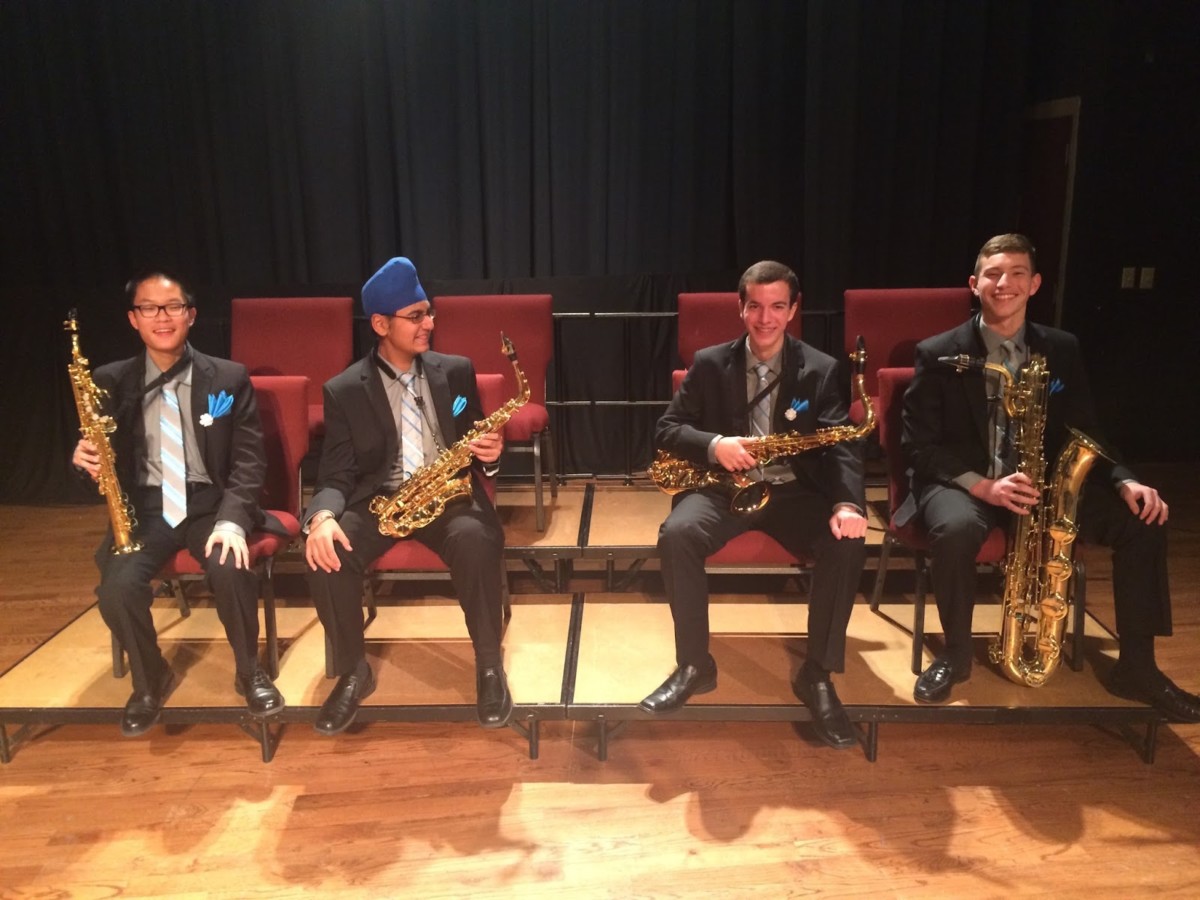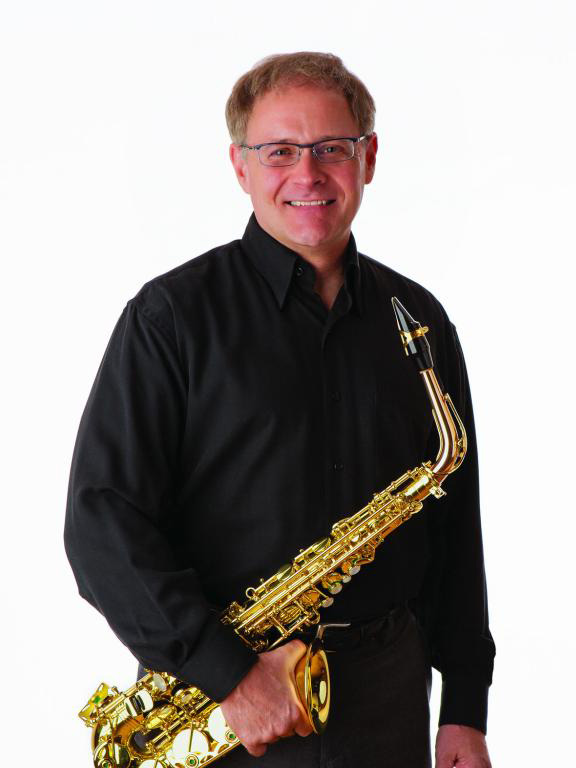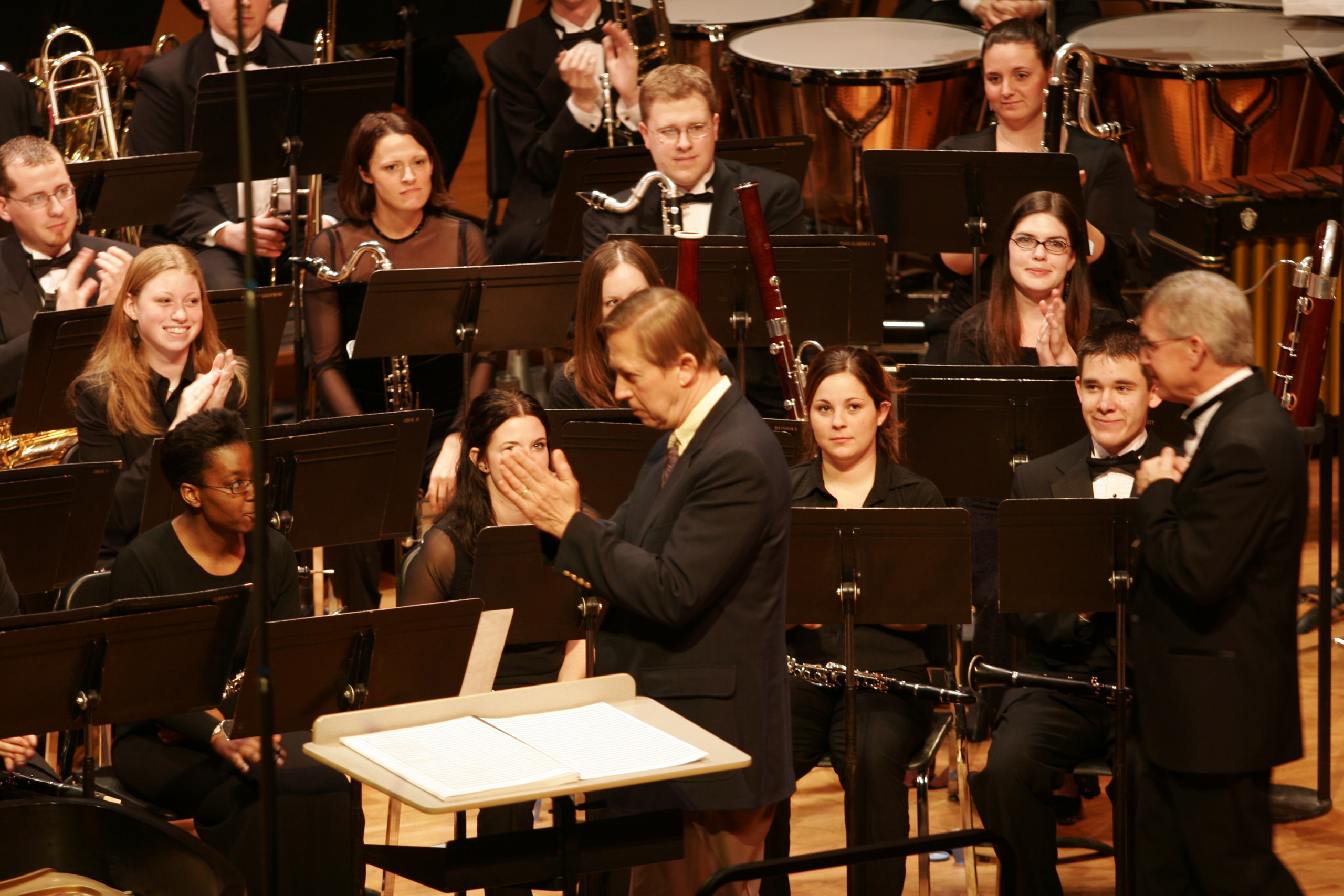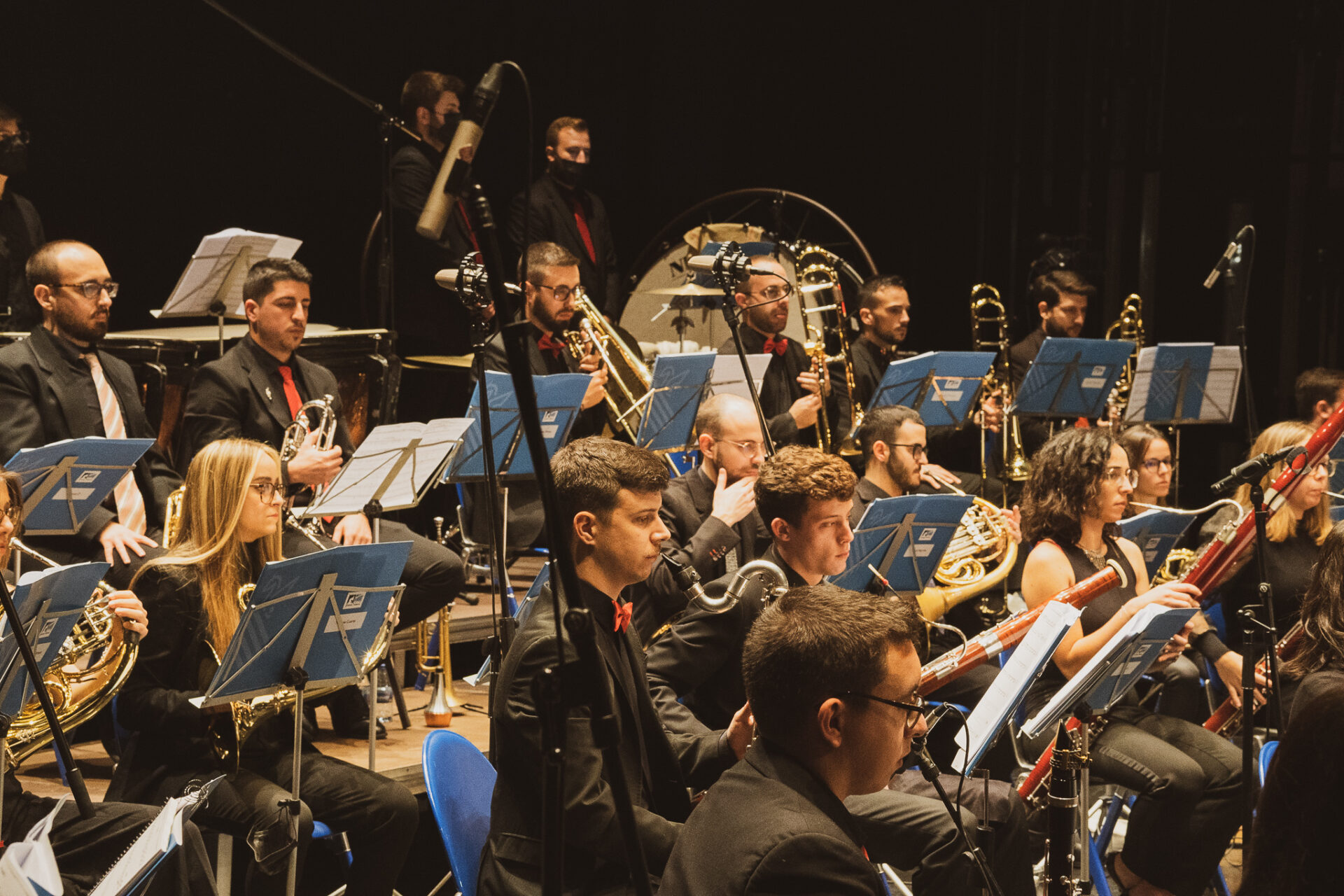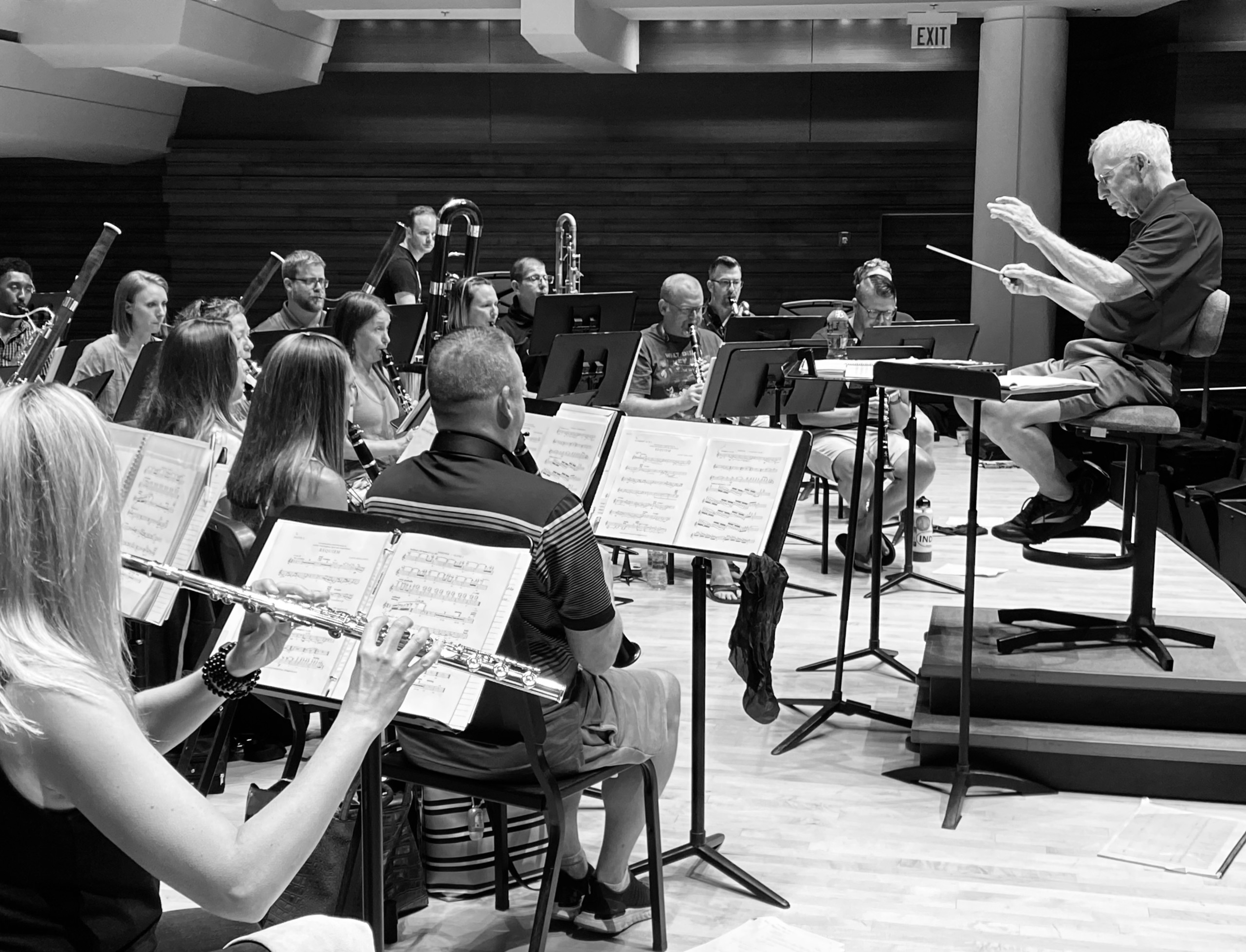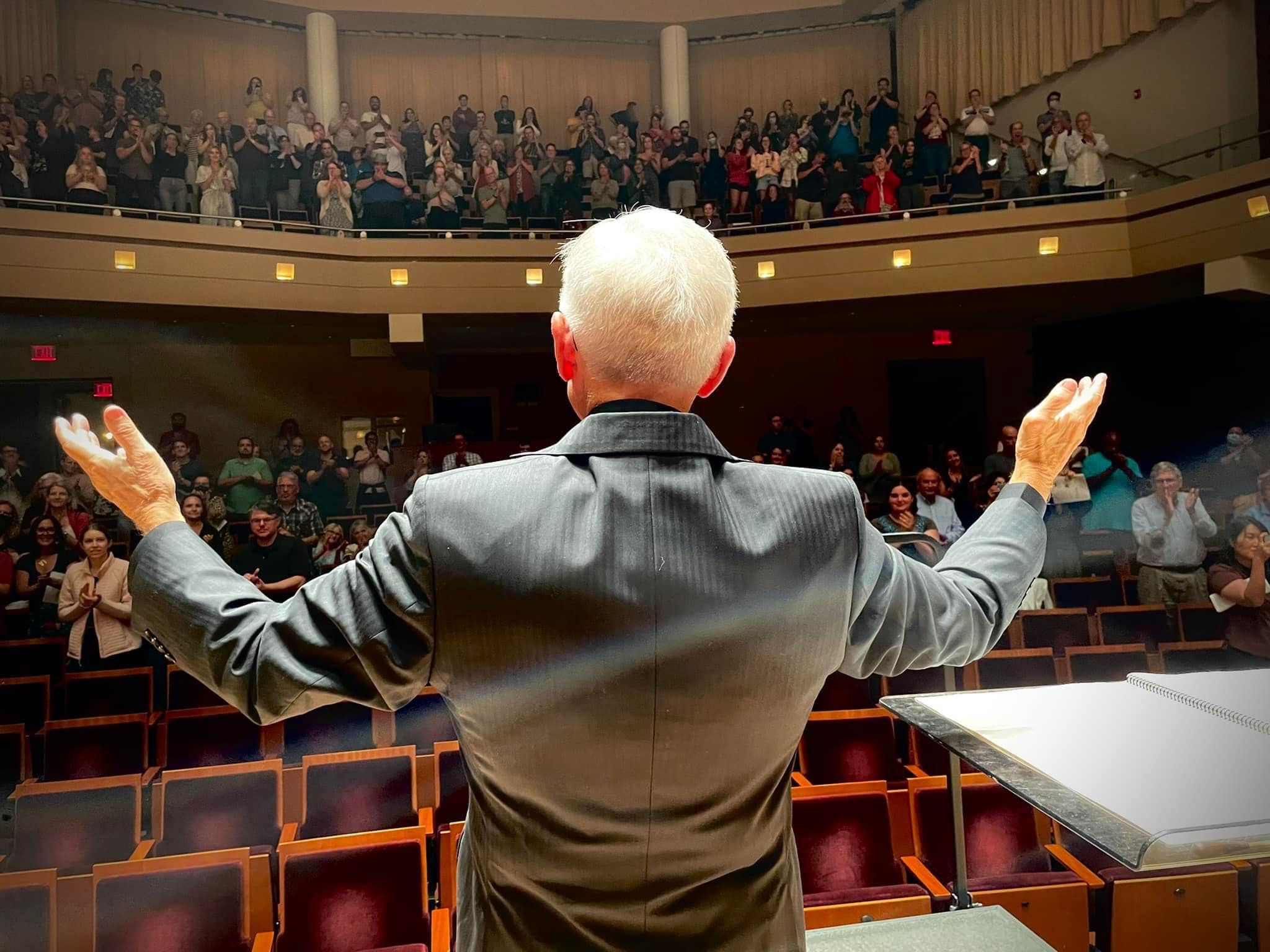Maslanka Weekly highlights excellent performances of David Maslanka’s music from around the web.
David Maslanka’s compositions for saxophone and saxophone quartet are some of the most sought after pieces in the classical saxophone repertoire. They have become standard works for the instrument and are studied and performed in virtually every conservatory and university around the world. This week, we feature three new performances of saxophone quartet music: “Fanfare/Variations on Durch Adams Fall” from Recitation Book, “Inwardly” and “Dramatic” from Concerto for Saxophone Quartet and Wind Ensemble, and “The soul is here for its own joy” from Songs for the Coming Day.
Recitation Book – V. Fanfare/Variations on Durch Adams Fall
From David’s Program Note:
I have loved Italian madrigals since my student days. Recitation Book for saxophone quartet feels something like a madrigal collection, but with a grand finale. My approach to composing is vocal, and the singing quality of saxophones is one of their fine strengths. The movements in this piece are relatively brief and intimate songs.
Much of my recent music draws its inspiration from the distant past. An old melody pushes open a door in my mind and a parallel world or dream makes its way out. Each piece in this set found its inspiration in that way.
The title, “Recitation Book,” implies a set of lessons. I don’t want to say explicitly what each “lesson” means, but the titles of the pieces circle around the theme of death, which for me implies the passing of the old, and the coming of the new.
Watch below as the Quantum Quartet gives a powerful rendering of “Fanfare/Variatons on Durch Adams Fall.”
More info
- Quantum Quartet
- Recitation Book @ davidmaslanka.com
Concerto for Saxophone Quartet and Wind Ensemble – I. Inwardly & III. Dramatic
From David’s Program Note:
For a period of time in the past year my musical listening was intently focused on the keyboard concertos of J.S. Bach. The invention of the keyboard concerto is attributed to Bach. His pieces in this genre are small musical gems, finding an exquisite balance of feeling, technique, and form. It is the element of balance that intrigues me the most – letting the music speak what it needs to as economically as possible.
(The) Concerto for Saxophone Quartet and Wind Ensemble reflects some of these values. It is not programmatic – no stories to tell beyond what the music wants to say, and what it sparks in each listener. The three movements are substantial but concise. The solo quartet is often integrated into the accompanying group in the fashion of a Baroque Concerto Grosso.
Two Chorale melodies appear in the Concerto, We Should Now Praise Christ, and Only Trust in God to Guide You. I have used Chorale melodies in my music for many years. These melodies open something deep in me. The Chorales have transformed my composing, and my composing has absorbed and transformed the Chorales. My use of the Chorales is not about preaching the Christian faith, but feeling the full power of melodies that have grown out of the Earth, and through centuries of human experience. They have been my doorway to the roots of our musical language.
Watch below as Pat Vandehey leads Quartet 321 and the Portland State University Wind Symphony in a sublime performance of Movements 1 & 3.
More info
- Pat Vandehey
- Quartet 321
- Bands at Portland State University
- Concerto for Saxophone Quartet and Wind Ensemble @ davidmaslanka.com
Songs for the Coming Day – VIII. The soul is here for its own joy
From David’s Program Note:
Songs for the Coming Day is in nine movements, and runs about 48 minutes. It was commissioned by the Masato Kumoi Sax Quartet and consortium. The movements are relatively brief “songs without words” with titles such as Breathing, Awakening, Letting Go of the Past, and The soul is here for its own joy. Eight of the nine movements are varying degrees of slow, emphasizing longer durations and quieter dynamics. There is a high demand for precise ensemble awareness and blended tone qualities. The title Songs for the Coming Day reflects my belief that under the chaotic surface of our world there is a rising creative energy through which is growing a new idea of living in harmony with ourselves and the Earth.
Watch below as the Khroma Quartet gives a riveting performance of “The soul is here for its own joy.”
More info
- Khroma Quartet
- Songs for the Coming Day @ davidmaslanka.com
We would love to hear from you! If you know of any outstanding performances of David Maslanka’s music on the web, please email us at maslankaweekly@maslanka.org.
